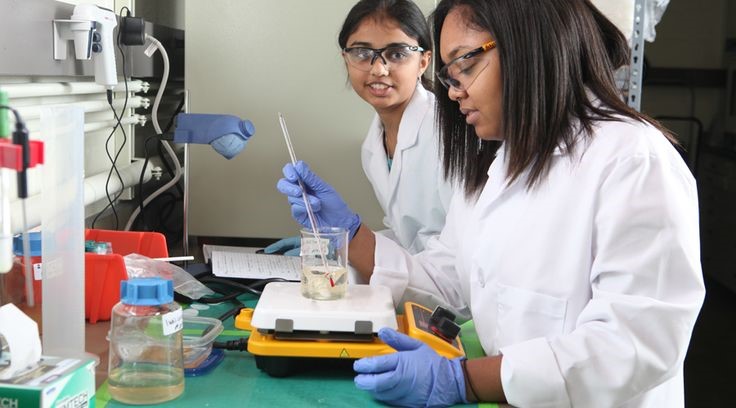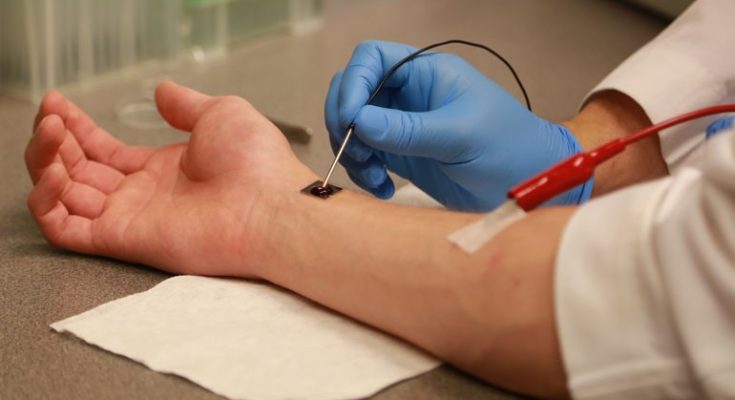What are Biomedical Engineering Breakthroughs
Welcome to the fascinating world of Biomedical Engineering Breakthroughs! In this blog post, we will delve into the innovative advancements that are revolutionizing healthcare as we know it. From artificial organs to gene therapy and wearable medical devices, biomedical engineering is paving the way for cutting-edge solutions to improve and save lives. Join us on this exciting journey through some of the most groundbreaking developments in the field!

What is Biomedical Engineering?
Biomedical Engineering is a multidisciplinary field that combines principles of engineering and biology to develop solutions for healthcare challenges. It focuses on applying engineering techniques to the medical and biological sciences, aiming to enhance patient care, diagnosis, and treatment.
This dynamic field encompasses a wide range of areas such as medical imaging, biomechanics, tissue engineering, pharmaceuticals, and more. Biomedical engineers design medical devices like artificial organs and prosthetics, develop advanced imaging technologies like MRI machines, and create innovative treatments such as gene therapy.
By integrating engineering concepts with biological knowledge, biomedical engineers play a vital role in improving quality of life for patients worldwide. Their work involves constant innovation and collaboration across various disciplines to address complex health issues effectively.
The Impact of Biomedical Engineering
Biomedical engineering has revolutionized healthcare by merging the principles of engineering and biology to create innovative solutions. This interdisciplinary field plays a crucial role in improving medical diagnosis, treatment, and patient care. By developing cutting-edge technologies, biomedical engineers have enhanced the accuracy and efficiency of medical procedures.
One significant impact of biomedical engineering is the development of advanced imaging techniques like MRI and CT scans that enable early disease detection. These tools allow for precise visualization of internal structures, aiding in timely interventions. Additionally, the field has led to the creation of life-saving medical devices such as pacemakers and artificial limbs.
Through continuous research and innovation, biomedical engineering continues to push boundaries in healthcare delivery. Its influence extends beyond hospitals into fields like pharmaceuticals, biotechnology, and rehabilitation sciences. The impact of biomedical engineering is profound, shaping a healthier future for individuals worldwide.
Top Biomedical Engineering Breakthroughs
Biomedical engineering has paved the way for remarkable breakthroughs that have revolutionized healthcare. One of the most significant advancements is in the development of artificial organs and prosthetics. These groundbreaking technologies have provided life-changing solutions for patients in need of organ transplants or limb replacements.
Gene therapy and CRISPR technology have also made waves in biomedical engineering by offering new possibilities for treating genetic disorders at a molecular level. The ability to edit genes holds immense potential for curing diseases that were once thought to be incurable.
Wearable medical devices have transformed how we monitor our health, allowing for continuous tracking of vital signs and early detection of potential issues. These devices empower individuals to take charge of their well-being proactively.
Regenerative medicine is another area where biomedical engineering has shown promise, with techniques like tissue engineering and stem cell therapy offering hope for regenerating damaged tissues and organs.
Each breakthrough brings us closer to a future where personalized medicine tailored to individual genetics becomes the norm. The innovative strides made in biomedical engineering continue to push boundaries, shaping the future of healthcare as we know it.
Artificial Organs and Prosthetics
Imagine a world where artificial organs and prosthetics revolutionize healthcare. Biomedical engineering has made significant strides in creating cutting-edge technologies that enhance the quality of life for individuals with organ failure or limb loss.
Artificial organs like hearts, kidneys, and lungs have the potential to save countless lives by providing temporary support or even permanent replacements. These innovations offer hope to patients on transplant waiting lists and improve their chances of survival.
Prosthetic limbs powered by advanced robotics allow amputees to regain mobility and independence. With customizable designs and sensory feedback systems, these prosthetics mimic natural movements more closely than ever before.
The integration of biocompatible materials and 3D printing techniques has paved the way for more durable and functional artificial organs and prosthetics. This blend of innovation and precision engineering is changing the landscape of healthcare as we know it.
Gene Therapy and CRISPR Technology
Gene therapy and CRISPR technology have revolutionized the field of biomedical engineering, offering innovative solutions to genetic disorders. Through gene therapy, scientists can modify or replace defective genes with healthy ones, potentially curing previously incurable diseases. This groundbreaking approach has opened up new possibilities for personalized medicine tailored to individual genetic profiles.
CRISPR technology, on the other hand, provides a precise tool for editing genes with unprecedented accuracy. By using molecular scissors to target specific DNA sequences, researchers can correct genetic mutations and address inherited conditions at their root cause. The potential applications of CRISPR range from treating genetic disorders to enhancing agricultural practices.
The combination of gene therapy and CRISPR technology holds immense promise for the future of medicine by addressing complex diseases at a fundamental level. As research in this area continues to advance, we may see even more remarkable breakthroughs that could transform healthcare as we know it.
Wearable Medical Devices
Wearable medical devices have revolutionized the way we monitor and manage our health. From fitness trackers to continuous glucose monitors, these innovative technologies are seamlessly integrated into our daily lives.
These devices can track vital signs, detect irregularities, and provide real-time feedback to users and healthcare professionals. With advancements in sensors and data analytics, wearable devices offer personalized insights that were once only available in clinical settings.
The convenience of wearing a device that constantly monitors your health empowers individuals to take proactive steps towards improving their well-being. Whether it’s tracking physical activity levels or monitoring chronic conditions, wearable medical devices play a crucial role in preventive healthcare.
As technology continues to evolve, we can expect even more sophisticated wearable devices that will further enhance how we manage our health on a day-to-day basis.
Regenerative Medicine
Regenerative Medicine is a cutting-edge field within biomedical engineering that focuses on harnessing the body’s natural ability to heal and regenerate damaged tissues. By utilizing stem cells, growth factors, and biomaterials, researchers are exploring innovative ways to repair and replace diseased or injured organs.
One of the most exciting applications of regenerative medicine is in tissue engineering, where scientists aim to create functional biological substitutes to restore lost functionality. Imagine being able to grow new skin for burn victims or even generate new heart muscle for patients with cardiac issues.
These advancements have the potential to revolutionize healthcare by providing more personalized treatment options and reducing the need for organ transplants. With ongoing research and technological developments, regenerative medicine holds tremendous promise for improving patient outcomes and quality of life in the future.
Ethical Considerations
When discussing biomedical engineering breakthroughs, it’s crucial to consider the ethical implications that come with these advancements. One of the main concerns is ensuring patient privacy and data security in an increasingly digital healthcare landscape.
Another key ethical consideration is the potential inequality in access to cutting-edge biomedical technologies. It’s essential to address disparities in healthcare delivery and make sure that these innovations benefit all individuals regardless of their socioeconomic status.
Furthermore, with the development of powerful gene editing tools like CRISPR, questions arise regarding genetic manipulation and its long-term consequences on future generations. Striking a balance between scientific progress and ethical boundaries is paramount in this field.
Additionally, there are ongoing debates surrounding the use of animal testing for biomedical research purposes. Finding alternative methods that are both effective and ethically sound is a challenge that researchers continue to face.
Navigating the complex ethical landscape of biomedical engineering requires careful consideration and thoughtful decision-making to ensure that these breakthroughs have a positive impact on society as a whole.
Future Possibilities and Advancements
As we look towards the future of biomedical engineering, the possibilities and advancements are truly astonishing. Researchers are exploring cutting-edge technologies like nanomedicine, 3D bioprinting, and bioinformatics to revolutionize healthcare. Imagine a world where personalized medicine tailored to an individual’s unique genetic makeup is the norm.
With the rapid growth of artificial intelligence and machine learning, we can expect more accurate diagnostics and treatments. Virtual reality simulations may soon assist in surgical planning and training processes. Additionally, advancements in brain-computer interfaces could lead to breakthroughs in treating neurological disorders.
The integration of robotics into medical procedures holds promise for enhancing precision and efficiency. Nanobots delivering targeted therapies directly to diseased cells could transform cancer treatment. The potential for organ regeneration using stem cells opens up new avenues for treating degenerative diseases.
Innovations in biomaterials will continue to improve implant durability and compatibility within the human body. As technology advances at an exponential rate, the future of biomedical engineering is filled with endless possibilities that will shape the landscape of healthcare for generations to come.
Conclusion
The field of biomedical engineering continues to push boundaries and revolutionize healthcare as we know it. With remarkable breakthroughs like artificial organs, gene therapy, wearable medical devices, and regenerative medicine, the possibilities for improving human health are endless. While there are ethical considerations that must be carefully navigated, the future looks bright with advancements on the horizon. Biomedical engineers play a crucial role in bridging the gap between medicine and technology, shaping a healthier world for generations to come. Keep an eye on this dynamic field as it propels us into a future filled with innovation and improved quality of life.



